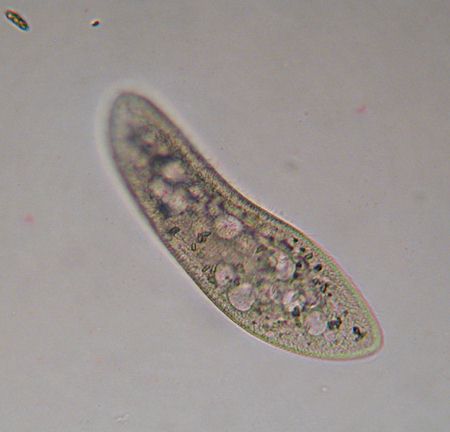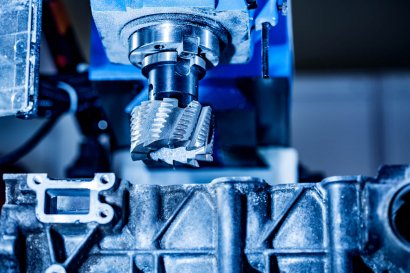 The body is made up of various structures, each with a specific function. These structures or functional units are called organs, the organs that intervene in similar processes, or that together fulfill a certain function, make up an apparatus or system.
The body is made up of various structures, each with a specific function. These structures or functional units are called organs, the organs that intervene in similar processes, or that together fulfill a certain function, make up an apparatus or system.
Some organs fulfill critical functions for the organism, so their absence is not compatible with life, these are known as vital organs and include the brain, heart, lungs, liver, pancreas, and kidneys.
Other organs, although they fulfill important functions, are not essential, so it is possible that they are removed from the body and that the person can continue living. Such is the case with the stomach, intestines, spleen, bladder, and sense organs.
The main vital organs and their functions are listed below:
Brain
The brain is the main organ of the nervous system. It is the command center of the body, in charge of controlling each and every one of the functions that occur in the body.
The brain receives information from outside and inside the body, coming from a complex network of receptors and structures such as the sense organs. This information reaches specific centers where it is processed giving rise to signals that control, regulate and allow the execution of various processes that occur both voluntarily and consciously, as well as unconsciously and autonomously (such as breathing, heartbeat, body temperature, hormone secretion and bowel movements among many others).
The brain is injured mainly by failures in its blood supply, which is due to the so-called cerebrovascular accidents that occur when there is a rupture of a blood vessel in the brain that causes hemorrhage, or when an artery becomes obstructed causing ischemia.
These conditions cause a part of the brain to die, leading to the appearance of a deficit, some areas may stop working without compromising the life of the patient, which occurs in cases of hemiplegia, where the affected area is the one in charge of motor control of the body which causes paralysis. However, if critical areas such as the upper part of the brain stem are damaged, the nerve centers that regulate functions such as respiration are affected, which causes respiratory arrest and therefore the death of the individual.
Heart
The heart is the main organ of the cardiovascular system. It has a muscular structure that gives rise to four cavities communicated with each other and with the main blood vessels through a valve system, which allows it to carry out its function of pumping blood through the circulatory system, which in turn is made up of two systems. : the major circulation and the minor circulation.
The greater circulation involves the left chambers of the heart, which receive oxygenated blood from the lungs to drive it to all organs and systems through the aorta artery. The right cavities, on the other hand, intervene in the minor circulation, in which poorly oxygenated blood is received from all tissues through the vena cavae and sent to the lungs for oxygenation.
This pump function is a critical process for the body, so it is impossible for life to continue when a serious heart condition occurs. In fact, there is a condition known as sudden death due to the presence of an electrical failure of the heart that causes it to stop, which compromises the supply of oxygen to the tissues causing them to die.
Lungs
The lungs are the organs in charge of oxygenate the blood, they also intervene in the regulation of the acid-base balance of the body.
Some disorders such as tumors, trauma or serious infectious diseases can lead to the need to remove one lung, being possible to live with the other with a good quality of life, however it is not possible to live without both lungs.
Some chronic conditions that affect the function of the lungs, such as chronic bronchitis or EBPOC, greatly affect the quality of life of those who suffer from them. These patients are limited in their ability to move and even speak, since any activity causes them great fatigue and shortness of breath. These types of conditions are irreversible and can only be definitively treated with measures such as lung transplantation.
Liver
The liver is one of the most important organs in the body, fulfilling more than 500 functions related to metabolism, hormonal function and blood clotting.
The liver is susceptible to environmental toxins, various microorganisms (mainly viruses), medications, alcohol, and excess fats and sugars in the diet. These factors cause changes in the composition of liver cells, known as hepatocytes, causing them to accumulate fat, which causes fatty liver, which over time progresses to fibrosis and the appearance of liver cirrhosis, a state in which the function of the liver it is compromised and is the main cause of liver failure.
Liver damage is a condition that severely affects quality of life, since it is not possible to live without this organ, which has led to the need to carry out transplant surgeries as the only treatment to maintain the life of the patient.
Pancreas
The pancreas is one of the main glands in the body. It fulfills functions called exocrine related to the production of enzymes that are released to the intestine to allow the digestion of food, mainly sugars and fats, in addition to that the pancreas produces and releases into the blood one of the most important hormones in the body, such as insulin.
Insulin production failure can be of two types, both of which lead to the development of diabetes. Some people develop resistance to the action of insulin, which causes the pancreas to produce very high levels of this hormone to keep blood sugar levels within normal limits; When the production of insulin is not enough, diabetes develops, this is the so-called type II diabetes that, if not treated, leads to the appearance of multiple complications that ultimately lead to the death of the patient. There is another type of diabetes known as type I diabetes, in which the cells of the pancreas responsible for producing insulin are destroyed by an immune mechanism, which means that insulin is not produced, a situation that is incompatible with life, forcing these patients must receive exogenous insulin permanently, unless they receive a pancreas transplant.
Kidney
 The kidney is an important organ located in the back of the abdomen, behind the peritoneum, it is part of the urinary system and is responsible for filtering the blood to produce urine. The kidneys also produce an important hormone known as erythropoietin, which works by stimulating the bone marrow to produce red blood cells.
The kidney is an important organ located in the back of the abdomen, behind the peritoneum, it is part of the urinary system and is responsible for filtering the blood to produce urine. The kidneys also produce an important hormone known as erythropoietin, which works by stimulating the bone marrow to produce red blood cells.
Kidneys are very susceptible to increased blood pressureTherefore, hypertension is the main factor related to the development of kidney damage, another important disorder that accelerates kidney damage is diabetes.
Kidney failure is known as renal failure, this condition in its advanced stages is incompatible with life, which is why patients whose kidneys stop working must undergo a treatment known as dialysis, in which the patient is connected to a machine that filters your blood. This treatment is done three times a week, three hours each session and once started, the only way to suspend it is to receive a kidney transplant from a deceased donor or a related relative.
Photos: Fotolia - Redline / Sebastian Kaulitzki









